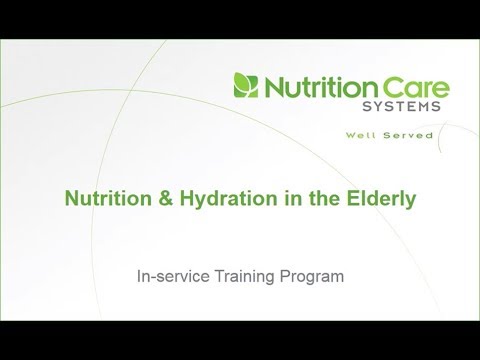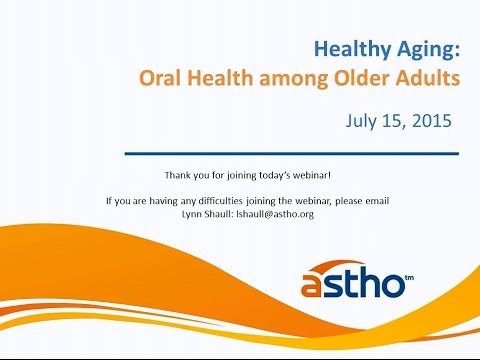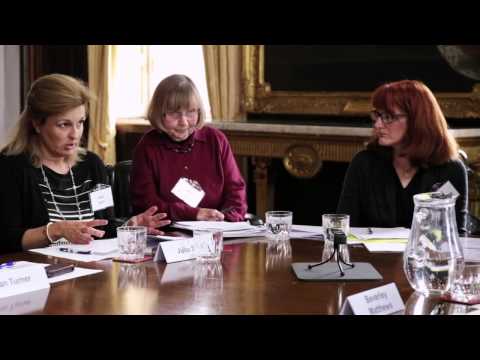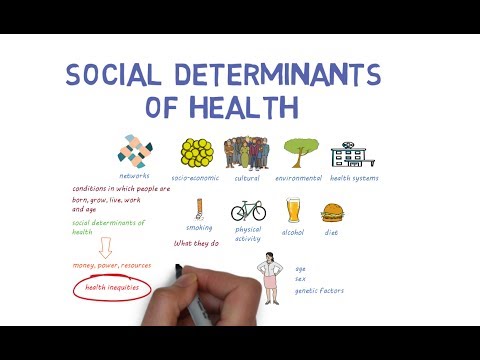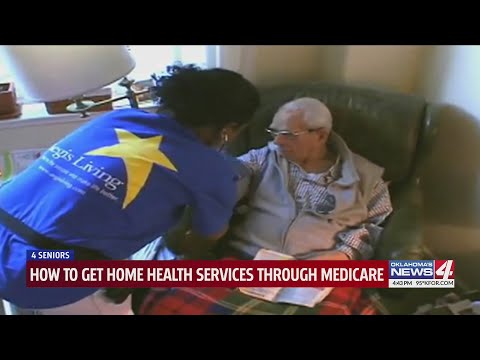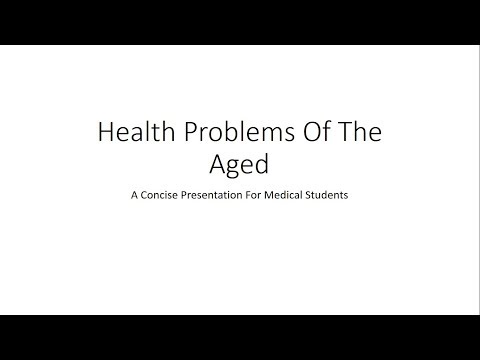Hydration and Health Literacy in the Elderly
Contents
- The Importance of Hydration for the Elderly
- The Link Between Hydration and Health Literacy
- The Consequences of Dehydration in the Elderly
- The Benefits of Good Hydration for the Elderly
- The Risks of Poor Hydration for the Elderly
- The Importance of Hydration Education for the Elderly
- The Role of Health Professionals in Improving Hydration Literacy
- The Need for More Research on Hydration and Health Literacy in the Elderly
- The Potential Impact of Improved Hydration on the Health of the Elderly
- The Way Forward – Improving Hydration and Health Literacy in the Elderly
As we age, our bodies become less efficient at retaining water. This can lead to dehydration, which can in turn lead to a whole host of health problems That’s why it’s important to stay hydrated, and to be aware of the signs of dehydration.
Checkout this video:
The Importance of Hydration for the Elderly
Hydration is crucial for the health and wellbeing of the elderly. As we age, our bodies become less efficient at retaining water, and we are more susceptible to dehydration. The symptoms of dehydration can be mild or severe, and can include dizziness, weakness, headache, nausea, and confusion. If left untreated, dehydration can lead to serious health complications such as urinary tract infections, kidney stones, and heat stroke.
It is important for the elderly to stay hydrated by drinking plenty of fluids throughout the day. Water is the best choice for hydration, but other beverages such as juice, milk, and soup can also help to keep the body properly hydrated. It is important to avoid caffeinated and alcoholic beverages, as these can actually contribute to dehydration.
If you are caring for an elderly loved one, it is important to make sure that they are staying properly hydrated. Keep a close eye on their fluid intake and watch for signs of dehydration such as thirst, dry mouth, dark urine, or fatigue. Make sure that they have easy access to fluids throughout the day and that they are drinking enough to stay properly hydrated.
The Link Between Hydration and Health Literacy
There is a strong link between hydration and Health Literacy in the elderly population. Those who are more literate about their health are more likely to be properly hydrated than those who are less literate. Proper hydration is essential for good health, and the elderly population is especially vulnerable to dehydration due to age-related changes in the body.
Health literacy is the ability to read, understand, and use health information. It is a major determinant of health outcomes, and poor health literacy has been linked to worse health status, higher mortality rates, and increased healthcare costs.
Dehydration is a major cause of morbidity and mortality in the elderly population, and it is preventable. Good hydration helps maintain cognitive function, prevents falls and fractures, aids in wound healing, and reduces the risk of hospitalization.
There are many factors that can contribute to dehydration in the elderly population, such as medications that have diuretic effects, decreased thirst sensation, impaired mobility, and cognitive impairment. However, the most important factor is reduced water intake.
Many elders are not aware of the dangers of dehydration or how to prevent it. They may not realize that they are dehydrated until they experience symptoms such as dizziness, confusion, or fatigue. Education about the importance of proper hydration and how to prevent dehydration is essential for all elders, but especially those with poor health literacy.
The Consequences of Dehydration in the Elderly
The consequences of dehydration in the elderly are numerous and potentially life-threatening. The elderly are more susceptible to dehydration for a variety of reasons, including their decreased level of activity, decreased sense of thirst, medications that act as diuretics, and chronic medical conditions that cause increased urine output. Dehydration can cause a number of problems in the elderly, including confusion, falls, constipation, and pressure sores. In severe cases, it can lead to kidney failure, coma, and death.
It is important for caregivers to be aware of the signs and symptoms of dehydration in the elderly so that they can take action to prevent it. Signs and symptoms of dehydration include sunken eyes, dry mouth and tongue, dizziness, fatigue, lightheadedness, and low blood pressure. If you notice any of these signs or symptoms in your elderly loved one, it is important to take steps to help them rehydrate as soon as possible. This may include providing them with fluids to drink or giving them fluids intravenously.
The Benefits of Good Hydration for the Elderly
Good hydration is essential for people of all ages, but it’s especially important for the elderly. Because their bodies are less efficient at regulating fluid levels, seniors are more prone to dehydration. Dehydration can cause a host of problems, including dizziness, fatigue, confusion, and falls. In severe cases, it can lead to hospitalization.
There are several things that can contribute to dehydration in the elderly. For example, many medications have side effects that can cause dehydration. Seniors may also be less likely to feel thirsty, and they may not get enough fluids because they don’t feel like eating or drinking.
There are several things that caretakers can do to help prevent dehydration in the elderly. One is to make sure that seniors have plenty of water available at all times. It’s also important to encourage them to drink regularly, even if they don’t feel thirsty. And if a senior is taking medication that could cause dehydration, caretakers should make sure that they also get enough fluids.
Good hydration is essential for good health at any age, but it’s especially important for the elderly. By taking steps to prevent dehydration, we can help keep seniors healthy and independent.
The Risks of Poor Hydration for the Elderly
As we age, our bodies become less efficient at regulating fluid levels. This can lead to dehydration, which can in turn cause a host of health problems dehydration can cause confusion and falls, and can lead to kidney problems and other chronic illnesses.
That’s why it’s so important for the elderly to stay hydrated. But many seniors struggle with this simple task. A study by the National Institute of Health found that nearly one-third of seniors have “poor health literacy,” which makes it difficult for them to understand and follow medical advice. This includes advice on staying hydrated.
There are a few reasons why seniors might have trouble staying hydrated. They may not feel thirsty, or they may not be able to get to the bathroom in time. They may also be taking medications that cause dehydration.
Whatever the reason, it’s important for caregivers and loved ones to help seniors stay hydrated. Here are a few tips:
-Make sure they’re drinking enough fluids every day. The Institute of Medicine recommends that men over 65 drink 3 liters (about 13 cups) of fluids per day, and women over 65 drink 2.2 liters (about 9 cups) per day.
-Encourage them to drink water throughout the day, rather than waiting until they’re thirsty.
-Make sure they have easy access to water and other fluids, such as by keeping a water pitcher in their room or bringing them a glass of water when you visit.
-Help them plan ahead for situations when they might not be able to get to the bathroom easily, such as during long car rides or walks. Bring along a portable toilet or urinal if necessary.
-Talk to their doctor about medications they’re taking and whether they could be contributing to dehydration.
The Importance of Hydration Education for the Elderly
As we age, our bodies become less efficient at regulating fluid levels, which can lead to dehydration. Dehydration can cause a number of health problems including kidney stones, constipation, urinary tract infections, and pressure ulcers. In addition, dehydration can worsen chronic conditions such as diabetes, heart disease, and high blood pressure. Because of this, it is important for the elderly to be proactive about their hydration by ensuring they are drinking enough fluids each day.
There are a few things to keep in mind when it comes to hydrating as we age. First, older adults generally need more fluids than younger adults because of their decreased ability to regulate fluid levels. It is recommended that older adults drink eight 8-ounce glasses of water or other fluids per day. Second, certain medications can increase the risk of dehydration. Be sure to talk to your doctor or pharmacist about the medications you are taking and whether they might contribute to dehydration. Finally, hot weather and increased activity can also lead to dehydration. Again, it is important to listen to your body and drink more fluids when you are sweating or exerting yourself more than usual.
If you are concerned about your hydration levels, there are a few things you can do to monitor yourself. First, check your urine color. If it is dark yellow or brown, you may be dehydrated. Second, pay attention to how thirsty you feel during the day. If you are frequently thirsty or have dry mouth, you may not be getting enough fluids. Lastly, keep an eye on any changes in your weight. If you notice that you are losing weight without trying, it could be due to dehydration.
If you think you may be dehydrated, it is important to see a doctor right away as dehydration can lead to serious health problems. However, the best way to avoid dehydration is by being proactive about your fluid intake and making sure you are getting enough liquids each day
The Role of Health Professionals in Improving Hydration Literacy
It is estimated that over 60% of the US adult population is literate, meaning they can read and understand basic health information. However, only 12% of the population is considered “health literate.” This means they can read, understand, and use complex health information to make decisions about their health.
Health professionals play a vital role in improving the health literacy of their patients. By providing easy-to-understand information about the importance of hydration and how to stay properly hydrated, health professionals can help ensure that their patients are able to make informed decisions about their health.
In order to effectively improve hydration literacy among the elderly, health professionals should:
– Provide clear and concise information about the importance of hydration and how to stay properly hydrated.
– Use plain language when providing information about hydration and avoid medical jargon.
– Use visual aids such as infographics or diagrams to illustrate key points about hydration.
– Make sure that patients have ample opportunity to ask questions and express any concerns they may have about staying properly hydrated.
The Need for More Research on Hydration and Health Literacy in the Elderly
While dehydration is a serious problem for people of all ages, it is especially dangerous for the elderly. This is due to a number of factors, including the fact that the elderly are more likely to be on medications that can cause dehydration, and they are also more likely to have chronic illnesses that can make dehydration more severe. In addition, the elderly are less likely to be able to detect early signs of dehydration, and they are also less likely to know how to properly hydrate themselves.
All of these factors underscore the need for more research on hydration and health literacy in the elderly. Only by understanding the unique challenges that this population faces can we hope to develop effective interventions to prevent dehydration and keep older adults healthy.
The Potential Impact of Improved Hydration on the Health of the Elderly
It is well-known that hydration is crucial for human health, but the elderly population is particularly susceptible to dehydration due to both physiological and psychological factors. This can lead to a number of serious health complications, including but not limited to, urinary tract infections, constipation, pressure ulcers, and falls. In fact, dehydration has been shown to be a significant contributing factor in hospital readmissions among the elderly.
Improving hydration among the elderly population could potentially have a significant impact on their overall health and well-being. One way to improve hydration is through education and public awareness campaigns targeted at this population. These campaigns could raise awareness of the importance of hydration, dispel myths and misunderstanding about dehydration, and provide practical tips on how to stay properly hydrated. Additionally, healthcare providers can play a role in improving hydration among their elderly patients by performing regular assessments and offering tailored advice on how to stay properly hydrated.
The Way Forward – Improving Hydration and Health Literacy in the Elderly
As the population of the United States ages, it is estimated that by 2030, one in five people will be 65 years of age or older.1 With this increase in the number of elderly Americans comes an increased risk for dehydration. The National Institutes of Health (NIH) defines dehydration as “a state in which the body’s fluid content is too low.”2 Dehydration can lead to a number of serious health complications, especially in older adults, who are more susceptible to the effects of dehydration due to age-related changes in physiology and medications that can cause increased fluid loss.3,4
Improving hydration and health literacy among older adults is critical to preventing dehydration and its associated complications. Hydration status can be difficult to assess in older adults, as they may not experience the same thirst sensation as younger adults and may not be aware of other early signs and symptoms of dehydration.5 Health literacy is defined as “the degree to which individuals have the capacity to obtain, process, and understand basic health information and services needed to make appropriate decisions.”6 Poor health literacy has been linked with poor health outcomes,7 so it is important that older adults have the skills and knowledge necessary to make informed decisions about their health and wellbeing.
There are a number of interventions that can be implemented to improve hydration and health literacy among older adults. These include: education about the importance of hydration, development of individualized hydration plans, use of technology to remind individuals to drink water throughout the day, tracking daily water intake using a journal or mobile app, and involving family and friends in supporting healthy hydration habits.8-10 Implementing these interventions at a societal level will require a coordinated effort by healthcare providers, public health officials, educators, industry representatives, and others; however, individual older adults can also take steps to improve their own hydration and health literacy by being proactive about their health and seeking out resources that can help them stay informed about how to maintain good health as they age.
1 American Association for Retired Persons Public Policy Institute & National Institute on Aging Forum on Aging-Related Statistics. (2018). An aging nation: Theolder population in the United States | AARPs Public Policy Institute . Retrieved from https://www.aarppublicpolicyinstitute.org/a4a/data-exploration/an-aging-nation-the-older-population-in-the-united-states/
2 National Institutes of Health: U.S National Library of Medicine National Institutes of Health – Definition of Dehydration . (2018). Retrieved from https://medlineplus.gov/dehydration.html
3 Becker DJ & Minton MS Jr (2015) Dehydration Risk Factors Specific To Older Adults: An Updated Review Of The Literature . J Nutr Gerontol Geriatr 35: 253–273 DOI: 10.1007/s13539-014-0040-3
4 Becker DJ & Minton MS Jr (2015) Dehydration Risk Factors Specific To Older Adults: An Updated Review Of The Literature . J Nutr Gerontol Geriatr 35: 253–273 DOI: 10

